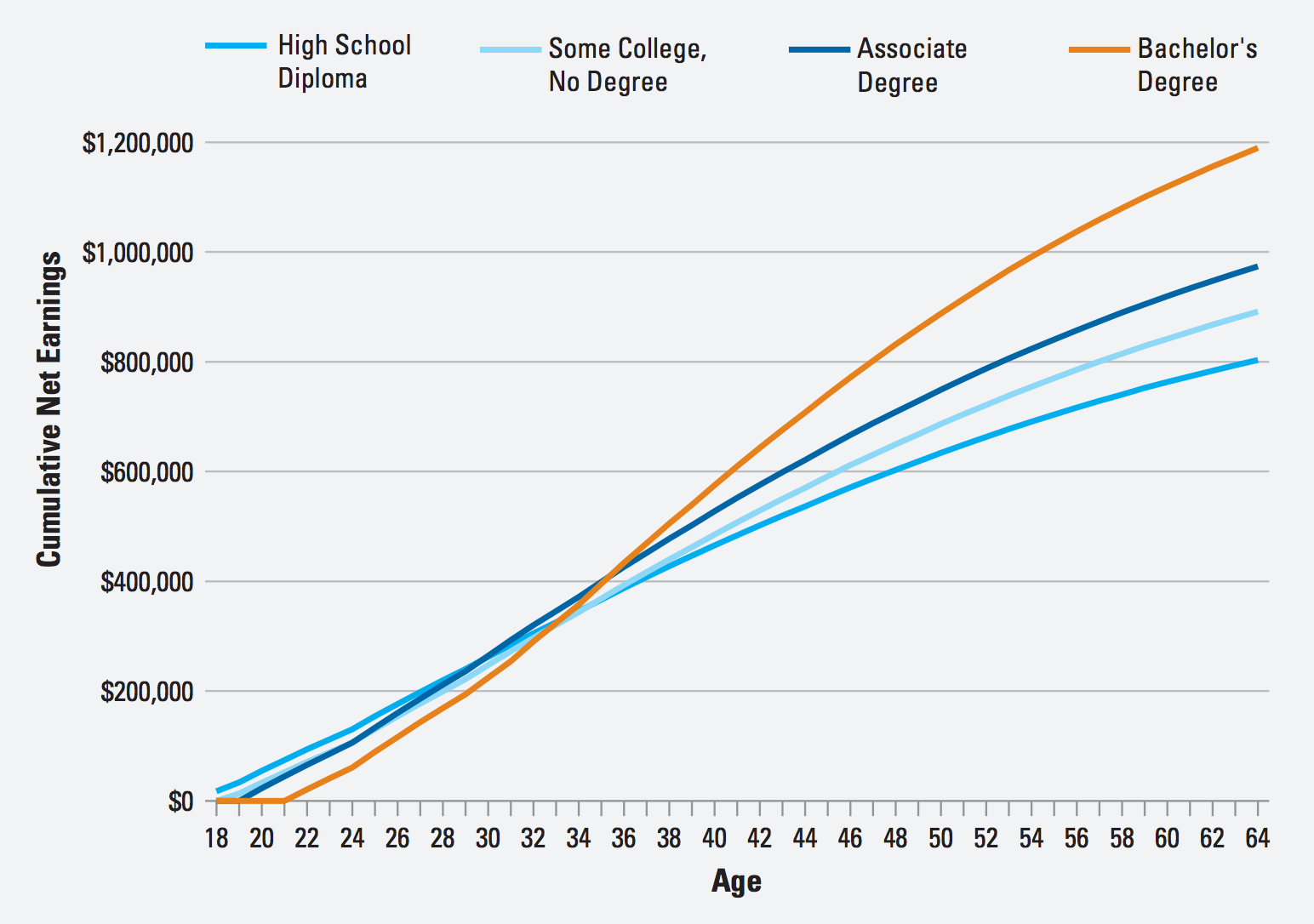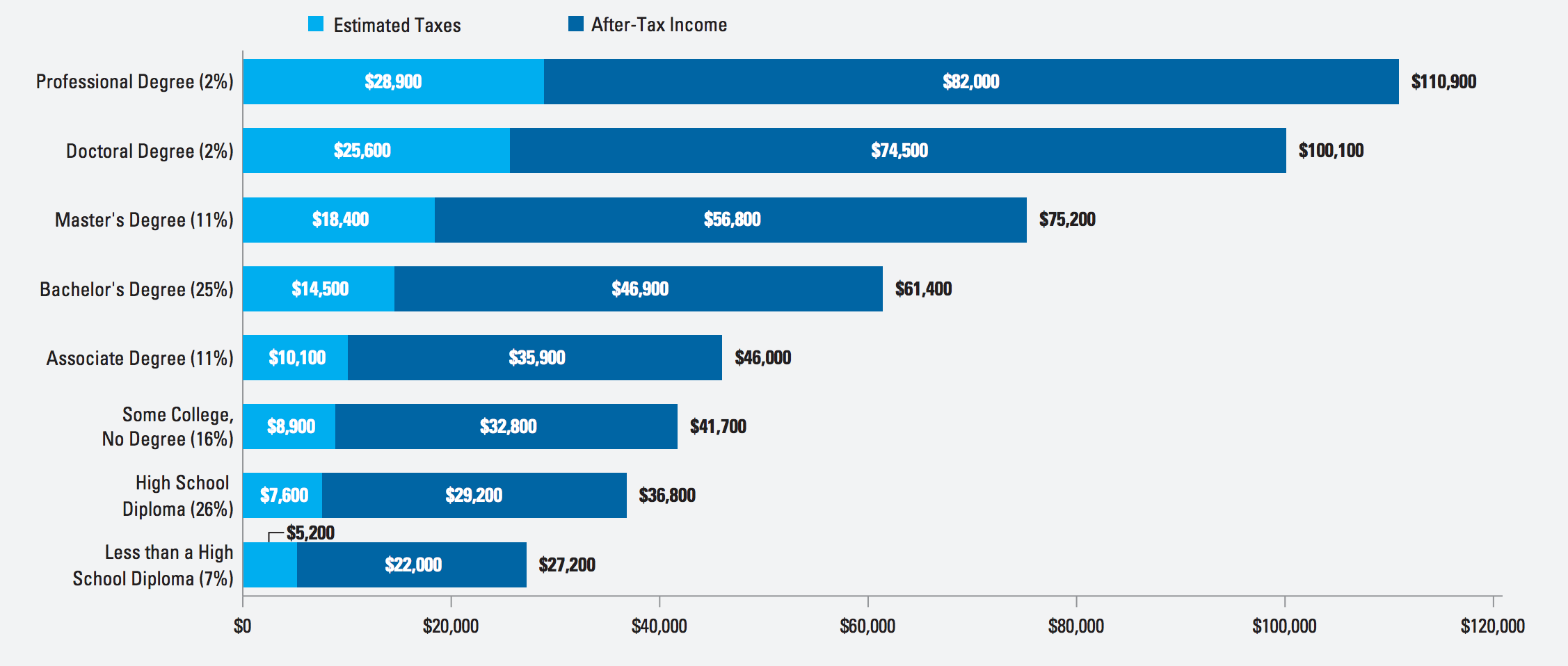It takes an average of 12 years to recoup the cost of getting a bachelor’s degree, according to a new report from The College Board. College graduates with a full-time job earn 67% more than high school graduates working full-time, according to the latest update, Education Pays 2016. This doesn’t include those who went on to earn an advanced degree. By age 64, those with a bachelor’s degree earn, on average, 50% more than high school graduates.
Estimated cumulative full-time earnings (in 2014 dollars) net of forgone earnings and payment for tuition and fees and books and supplies, by education level
These earnings estimates by the College Board conservatively assume a student has no income during her/his college years and borrows to pay the full cost of tuition, fees, books, and supplies and pays it off over 10 years after graduation with a 4.29% interest rate. When considering the more likely net cost of college (cost minus scholarships and other discounts), the payoff occurs at age 31.
More education = Economic stability
Despite misperceptions of unemployed college graduates, the unemployment rate for 25- to 34-year-olds with a bachelor’s degree was 2.6% last year, more than five percentage points below the unemployment rate for those with just a high school education. According to the Georgetown University’s Center on the Workforce, 99% of jobs filled since December 2007 have gone to workers with at least some college education. For the college-educated, job opportunities during the recovery have been robust. In Utah, 3 out of 4 of all college graduates are employed within 12 months of graduation.
In high demand areas such as business, engineering, technology and healthcare, those employment rates are considerably higher. The higher the educational attainment, the less-susceptible a person is to economic changes. The following graph shows how those with higher educational attainment were insulated from the effects on unemployment during the Great Recession than those with less education.
Unemployment rates of individuals age 25 and older, by education level, 1995 to 2015
More education = A stronger economy
Not only is there an extraordinary ROI for individual graduates, college-educated citizens are among the most-reliable sources for strengthening state budgets. In Utah, last year’s college graduates will provide an estimated $48 million in increased tax revenues annually. Bachelor degree recipients paid an estimated 91% more in taxes than those with a high school diploma.
Median earnings and tax payments of full-time year-round workers age 25 and older, by education level, 2015




